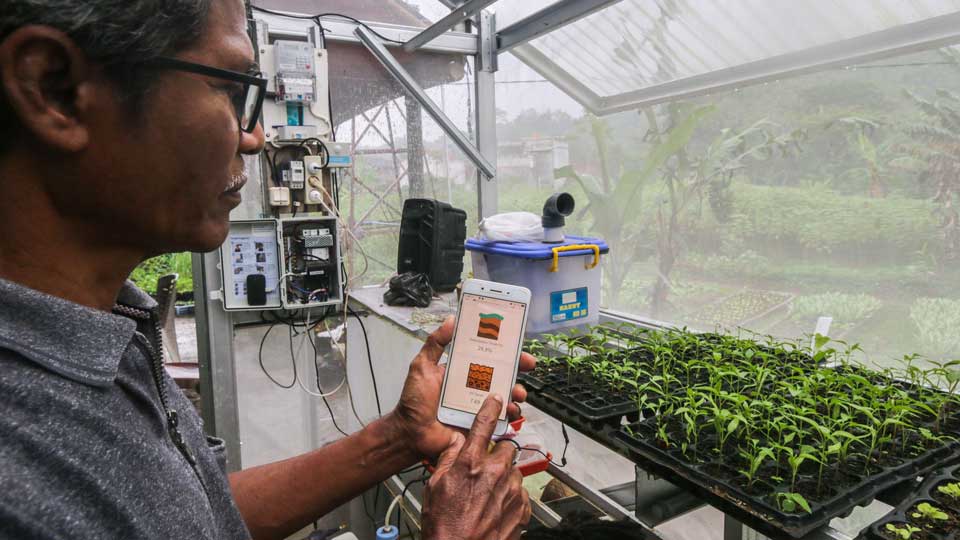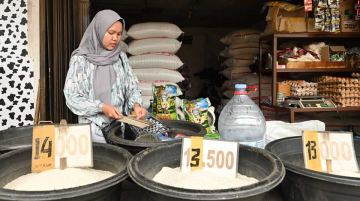
Conversations around the China-Indonesia cooperation usually revolve around the big, flagship Belt and Road Initiative (BRI) projects like the high-speed rail, the industrial parks, or nickel processing in Morowali and Weda Bay.
But, development and sustainability can be driven by a lot more diverse actors, not just the big players and the state. There is enough room for everyone. In Indonesia, Chinese investments in impact-related, or green-related startups are still at a very minimum level.
I spoke with Jessica Anandajoo, co-founder and partner of Indonesia-based impact consultancy Damar, to gain perspective from smaller-scale players working in sustainability in Indonesia about the opportunities and challenges for Chinese investments.
Damar works with small and medium-sized businesses to improve their responsible business practices, using a data-driven approach to help clients understand impact and adapt, and ensure they can respond to challenges and capitalize on future opportunities. Because of the disruptive nature of impact-led businesses, Damar’s clients typically come from the tech sector.
The Q&A has been lightly edited for clarity.
ANTONIA TIMMERMAN: Do you have a view of what the trend or landscape currently is regarding Chinese investors coming to Indonesia and pursuing impact-related projects? If so, can you tell us more about what you’re seeing; for example, what kind of sectors or verticals they are flocking to currently and in what kind of sizes?
JESSICA ANANDAJOO: Well, Indonesia has definitely been a major hotspot for Chinese investments, particularly in infrastructure and mining. We are also seeing several Chinese investments in big-scale, green-related projects like the multi-billion hydroelectric project in Borneo and Huawei’s $500 million financing for a new 5G network.
The hydroelectric project will power what the president has called “the largest green industrial park in the world”, a $132 billion-worth project also with investments from China, and other countries. Meanwhile, Huawei’s 5G network is hoped to improve the efficiency of Indonesia’s transportation, energy, and healthcare sectors, and help the country to reduce its carbon emissions.
From the impact lens, it’s interesting to see how these Chinese investments play a role in fostering Indonesia’s economic growth, like providing additional income and creating new jobs, to some extent. Having said that, it would be remiss not to note the environmental and social risks posed by these projects, as it is with anything executed at such rapid speed.
I think Indonesia can certainly have a more fruitful relationship with Chinese investments. The government has to put in place safeguards to protect the environment and the rights of workers, and lastly, it needs to build capacity to manage Chinese investments.
Jessica Anandajoo, co-founder and partner of Indonesia-based impact consultancy Damar
ANTONIA: And we know about China’s extensive involvement in green transportation supply chain development in Indonesia, and how it’s being done on such rapid and large scales. But what about smaller-scale, green projects in Indonesia? I’m sure we have a lot of green tech startups who would appreciate support to scale their business. What opportunities in Indonesia that you think are still being overlooked by Chinese players?
JESSICA: That’s right, I haven’t seen much traction from Chinese players or investors for the green tech sector over here. As far as the tech startup industry is concerned, what I can say is that a very significant portion of the investment capital is in the booming sectors of e-commerce, telecommunications, ride-hailing, payments, what have you.
In reality, there are so many untapped opportunities in green tech. Agricultural production, for one. We are seeing some startups trying to provide solutions to low yields, high post-harvest losses, and the low rate of mechanization, among others. Reforestation, blue carbon, rehabilitation, and other climate projects also have a lot of potential that could be cultivated.
There are many startups attempting to tackle renewable energy. While it is indeed a hot sector and not exactly overlooked, the sector is harder to penetrate simply because any private business would need to compete with our state-owned electricity company.
ANTONIA: What are the most common risks and challenges associated with investing in smaller-scale, green projects in Indonesia for Chinese players?
JESSICA: Generally speaking, the Indonesian government prioritizes neutrality over geopolitical competition, and plus, there’s a long-standing anti-Chinese sentiment in the country. Then, I would say, there’s not enough talent, particularly in the digital and green sectors.
Indonesia is a big country and is very diverse in cultures, customs, traditions, religions, and so on, which may pose challenges for Chinese players trying to understand the local market. To some lesser extent, language barriers are also a problem. All these points would apply to any other projects being invested in, in my opinion.
I think Indonesia can certainly have a more fruitful relationship with Chinese investments. First, we need to ensure that the investments are aligned with our commitment to Sustainable Development Goals (SDGs). Second, the government has to put in place safeguards to protect the environment and the rights of workers, and lastly, it needs to build capacity to manage Chinese investments.
Jessica Anandajoo is the co-founder and partner of impact consultancy Damar.







